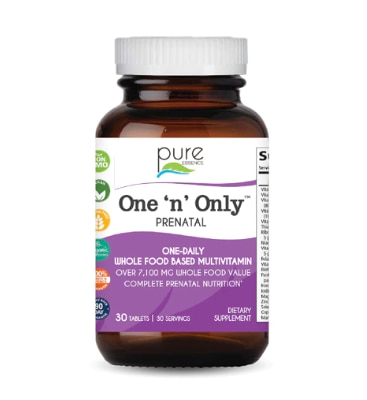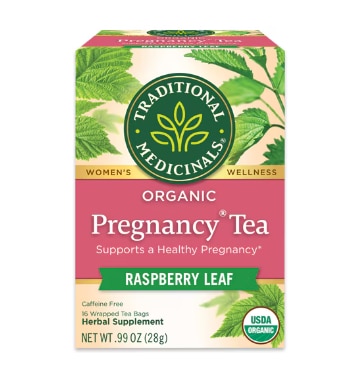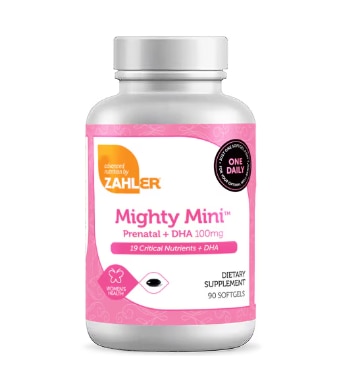When a person first finds out they’re pregnant, they typically anticipate changes occurring in their body as they grow their baby. Yet, one aspect can be challenging to accept: pregnancy weight gain. Many dread this topic, despite understanding its necessity for a healthy baby. On top of that, the visibility of these changes can lead to self-consciousness and, sometimes, unsolicited comments the further along you get into pregnancy.

Whether you’re beginning this journey or nearing its end, curiosity may set in about how much weight gain should be expected, where this weight goes and how to ensure it happens healthily. Let’s explore the answers to these questions together.
Weight during pregnancy: What’s healthy?
Pregnancy is broken down into three trimesters. Each of those trimesters comes with different calorie and weight gain recommendations. Weight gain is based on pre-pregnancy weight and BMI. Here are the total recommended pregnancy weight gain ranges, according to the American Pregnancy Association.
- BMI <18.5 – Recommended weight gain: 28-40 pounds
- BMI 25-29.9 – Recommended weight gain: 15-25 pounds
- BMI 30 or more – Recommended weight gain: 11-20 pounds
One thing to note is that every pregnancy and every body is different, and some women may have a healthy pregnancy and gain above or below these recommendations.
If experiencing pregnancy weight gain beyond the standards, remember that pregnancy is not the time cut back and deprive your body of nutrition. Honor your body, its hunger cues and the changes you are going through to grow your little bundle of joy.
Pregnancy weight gain & calorie needs through trimesters
First trimester (1-13 weeks)
During the first trimester, it’s recommended to gain between zero and 5 lbs. Since the first trimester is known for nausea, food aversions and morning sickness, you may even experience weight loss. If you do lose weight during pregnancy, make sure to bring it up with your healthcare provider.
Due to nausea, eating balanced might not be in the cards. Focus on eating what will stay down and getting in protein sources throughout the day. Because the baby is so small during the first trimester, there are no additional caloric needs beyond meeting current needs.
Second trimester (14-27 weeks)
The second trimester is when weekly weight gain starts. Expect to gain around 1-2 pounds per week on average. Some weeks may be more, and some weeks may be less – your body will gain what it needs when it needs it.
This is the trimester most women start to visibly look pregnant with a growing belly. Another thing that might be growing is your appetite. The Academy of Nutrition and Dietetics recommends consuming an extra 340 calories per day, which would be the equivalent of eating an extra snack or a slightly larger portion at meals.
Third trimester (28-40+ weeks)
During the third trimester, continued weekly weight gain occurs, with a recommended weight gain of 1-2 pounds per week. Calorie needs increase to an additional 430 calories per day, but remember that it’s important to listen to your hunger cues. Some days you may not need the full 430 calories, and some days you will need all of it. Things often start to get crowded in the third trimester, so a good tip is to eat small frequent meals throughout the day.
The benefits of physical activity during pregnancy
The most important thing to remember regarding exercise during pregnancy is that we need to be willing to listen to our bodies and honor the days when it’s a good idea and days when it’s better to rest. It can be easy to experience guilt when choosing to rest on days when it’s needed; but remember that growing a human is hard work, and sometimes intentional activity must take a backseat – guilt-free!
When you’re able and willing to exercise, there are many benefits such as keeping the body strong for labor, easing aches and pains, and assisting with healthy weight gain during pregnancy.
Nutrition’s impact on mother and baby
Pregnancy is a perfect time to prioritize the best nutrition possible. Eating well affects not only the health of the baby but also the mother’s own health.
Focus on choosing nutrient dense foods such as whole grains, fruits, vegetables, lean protein sources, legumes and healthy fats. The more nutrient-dense foods consumed the more nutrition can be given to both a growing body and baby.
Bouncing back from weight gain during pregnancy
Motherhood propels us into a whole new world, and that includes a whole new body. For generations the conversation has been about bouncing back to old selves, but what if the focus was on bouncing forward into the new you!
Embrace the new person that was born right alongside the new baby. The journey of pregnancy not only reshapes the body, but it also reshapes the mind. This change brings the opportunity to embrace the new you and experience health beyond weight.
In summary
Weight isn’t always something we can control; the goal is to focus on the factors that can be controlled with an extra focus on overall health. Consider nutrition, physical activity, rest and mental health as part of an overall wellness plan.
Remember that priorities will not only change from day to day but could also change from moment to moment. Be mindful of your needs and switch focus when needed. To discuss healthy weight gain during pregnancy further, schedule a telenutrition appointment with a registered dietitian.
Featured Products



The post Weight Gain During Pregnancy: A Dietitian Details What’s Healthy at Every Stage first appeared on The Upside by Vitacost.com.

